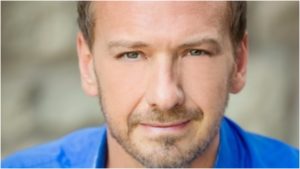
Q & A: Bass-Baritone Wayne Tigges on ‘The Flying Dutchman’ At Atlanta Opera
By David SalazarMusic was always a major part of bass-baritone Wayne Tigges’ youth.
As the youngest of 10 kids, his father was part of a professional barbershop quartet and the majority of his family members were singers in one way or another. The young Tigges was also a lead singer in a heavy metal band called Aftershock.
From there he would eventually find his way to becoming an opera singer, singing at some of the major houses around the world including The Metropolitan Opera, San Francisco Opera, Lyric Opera of Chicago, Paris Opera, Glyndebourne, Opera del Liceu, LA Opera, Cincinnati Opera, Santa Fe Opera, and the Teatro du Capitol Toulouse.
This month, his career takes another major turn as he takes on the ever-challenging role of “Der Fliegende Holländer” at the Atlanta Opera this coming month. The bass-baritone has already taken on the role numerous times in his career, but in speaking with OperaWire, he noted that this upcoming showcase is among the most exciting of his career.
OperaWire: What makes this role so important to you?
Wayne Tigges: Every role I do is extremely important to me and I enjoy the challenges of this one. Even though it is known as a short opera for Wagner’s standards, it is extremely intense and highly charged singing. This is now my fourth production as The Dutchman, and it is has been my introduction to the world of Wagner singing. This type of singing is a very different animal than your typical Italian and French repertoire. The orchestra tends to be denser in Wagner repertoire and you have to be extremely careful as to not harm your throat. Your technique has to be solid. Singing this role has given me the confidence to handle Wagner repertoire and I’m grateful to sing it every chance I get.
OW: How has “The Flying Dutchman” grown for you since your first interpretation of it?
WT: It is much easier to sing now, and I feel I can do justice to this role. I am able to put many more colors into the sound, and really work on the interpretation of the role. Every production I have done of this has been extremely different from each other. Tomer Zvulun really focuses on telling the story and he has been absolutely fantastic. Of the four productions I have done, this production seems to be the best. Atlanta Opera has a gem in this one.
OW: What is your favorite musical moment of this opera?
WT: Easily the duet with Senta, “Wie aus der Ferne.” As a self-proclaimed “vocal geek”, and lover of all that has anything to do with the physics of sound, it has everything in it to cleanse my vocal palette. The duet alone is 15 minutes long, and has everything a young Wagner singer can hope for. It has soft singing, loud singing, and the necessity of vocal stamina. When I come to see the show, it is this duet that I anxiously wait for.
OW: What are the greatest challenges to singing this iconic Wagner character?
WT: This particular role lies heavily in the area of the voice called “the passagio.” It is an area where your voice changes into a different area of resonance and it can be extremely difficult to manage.
OW: How is singing Wagner different from other composers?
WT: Wagner tends to be more intense and I hate to use the words “sing louder, more occasionally,” but with the density of the orchestra this becomes necessary. The German language can cause problems as well. It is a “guttural” language and consonants tend to be a bit more important. The Italian and French languages are for me simply easier to sing pretty. The Italian language because of the pure vowels, and the French language because of the higher placement. To give an example, “I love you” in Italian is “Ti Amo.” In German, it is “Ich liebe dich.” It is easier to sing on a vowel than to sing on a consonant.
OW: How has this production by Tomer Zvulun altered or changed your interpretation of the role? What excites you the most about this series of performances?
WT: Tomer is an absolutely incredible director. He is intense and knows the language very well. His ideas of this production are very exciting. The production is well thought out, and his ability to cast the singers is second to none. I am definitely more concerned with telling the story and keeping the acting as honest as possible. Tomer allows a great combination of freedom to create with his own personal decisions in order to fit this production. His show has everything you need for a great opera experience.
OW: What are your dream roles?
WT: I have done “Das Rheingold” from Wagner’s Ring Cycle before, but one of my dreams is to do Wotan in the entire Ring Cycle. I have had the great luck of doing eight different world premieres, and actually creating a role, which is always exciting. I do think that Iago in “Otello” would be right up there, and I have always wanted to do Sweeney Todd.


